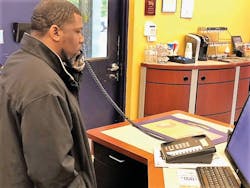Tire Pricing Strategy: Why You Shouldn’t Play the Match Game
When Mavis Tire Supply Corp. purchased the Sun Tire and Automotive Services chain in March, it put the scare into one of my customers. “Competition has never been greater, especially for the small dealer,” he said. “The big are getting bigger. I feel like an island, with fewer options.”
It seems that change is in the air. Merger mania on both the retail and wholesale side continues to happen, with Mavis, Monro Inc. and now Goodyear Tire and Rubber Co. and Bridgestone Americas Inc. (with their TireHub joint venture) the most aggressive players at the moment.
Many tire retailers feel like they are being surrounded and vulnerable to how others may try to beat them with lower prices, rebates and sales gimmicks. Even though tire dealers need to be aware of what is going on in the market, they have to think about what they can control and not worry about what their competitors are doing or not doing.
Many times the worry comes from a lack of pricing strategy. For example, we were working with a multi-store dealer recently, and found his price for a popular LT size was almost $40 per unit lower than his nearest competitor.
Some dealers are afraid to increase their prices against the low-cost leaders when they should be optimistically cautious. With the proper phone skills, most front counter salespeople can sell tires for up to $80 to $100 more per set. Many times this comes down to how you make the customer feel on the phone. Those feelings include:
- how you communicate integrity (they will trust you more),
- how you communicate value (they will feel they are getting more value), and
- how they feel about your team (the more professional your staff, the better information flows in your dealership -- and they will notice).
How you make a customer feel is now called Customer Experience and involves making your customer feel served and never sold. Of course, engaging customers in a meaningful way on the phone and accomplishing this does not happen overnight. Salespeople who try to sell to customers turn off a larger percentage versus those salespeople who offer the customer multiple choices and then ask the customer, “Which one would you like to choose for your car?”
I have noticed that there are too many “I would like to sell you” salespeople, which has given the online retailers a huge niche. Online retailers have taken the trust of another human out of the equation and helped commoditize tire sales as well as other products.
Fallacies of price matching
We have found that when customers mention they can find a lower price elsewhere, they are indirectly telling your salespeople, “I want to do business with you, but you have to make me feel like I am getting a better value.” Many consumers understand that if the dealership has the lowest price, it may very well sacrifice in others areas, such as service.
As for value, I notice many dealers do not list on the bill the services that the customer either receives for free or at a discounted rate. To get full credit for this “value,” set up your invoices accordingly.
Proof that building value will work
Several years ago Subway only had one competitor: Quiznos.
Quiznos started matching price but did not lower quality. It could have kept its higher price by holding its ground and communicating that it was better because of better ingredients, therefore building value (i.e., “We cost more because we taste better”).
Here’s proof of the validity of the higher price theory: After Quiznos virtually dissolved, many competitors filled the niche that was left (Firehouse Subs, Jimmy John’s, Jersey Mike’s), and none of them are close in price to a $5 footlong offered by Subway. — Mike Townsend
If the potential customers did not want to patronize your store, they would not challenge your price. They would say something like, “I will let you know soon.”
A professional salesperson knows the capabilities of all his or her competitors, and knows how to properly sow seeds of doubt against them without ever mentioning their names. They also know how to avoid negotiating tire price or worse, in my opinion, matching price.
Below are eight reasons why allowing your salespeople to negotiate and/or price match on a tire sale is a bad idea.
- It greatly reduces the profits of your store.
- It encourages your salespeople to be order takers.
- If it is negotiable, many customers will perceive you as less than trustworthy.
- Women rate price lower than being locally owned as a reason to buy -- as long as you can communicate value.
- Price matching communicates that your price is already too high.
- Price matching also encourages a potential customer to shop your competitors.
- You are falsely assuming the customer will not buy value.
- It makes it virtually impossible to employ and keep professional salespeople.
The professional salesperson of today needs to be equipped with multiple processes, phone skills, and know how to make customers feel like they are getting the best value by coming to your store compared to your competitor. Even though it is not easy to overcome when a prospect challenges your price, it is possible to win more than you lose while keeping your margin on the tire sale.
For more information on how to overcome competitors that lead on price, download our free e-book at townsendstrategies.com/freebook. ■
Mike Townsend is owner of Townsend Strategies, a sales and leadership training and marketing firm. He has nearly 30 years of sales experience, 13 of them in the tire industry. As a Six Sigma black belt and professional trainer, Townsend says he “has witnessed every scenario and heard every objection in the retail tire environment across every state in the U.S.” For more information, call (865) 318-4588 or (800) 319-8552, or email Townsend at [email protected].
About the Author

Mike Townsend
Mike Townsend is the owner of Townsend Strategies, a sales and leadership training and marketing company that advises independent tire dealerships. To contact Townsend, email him at [email protected].
